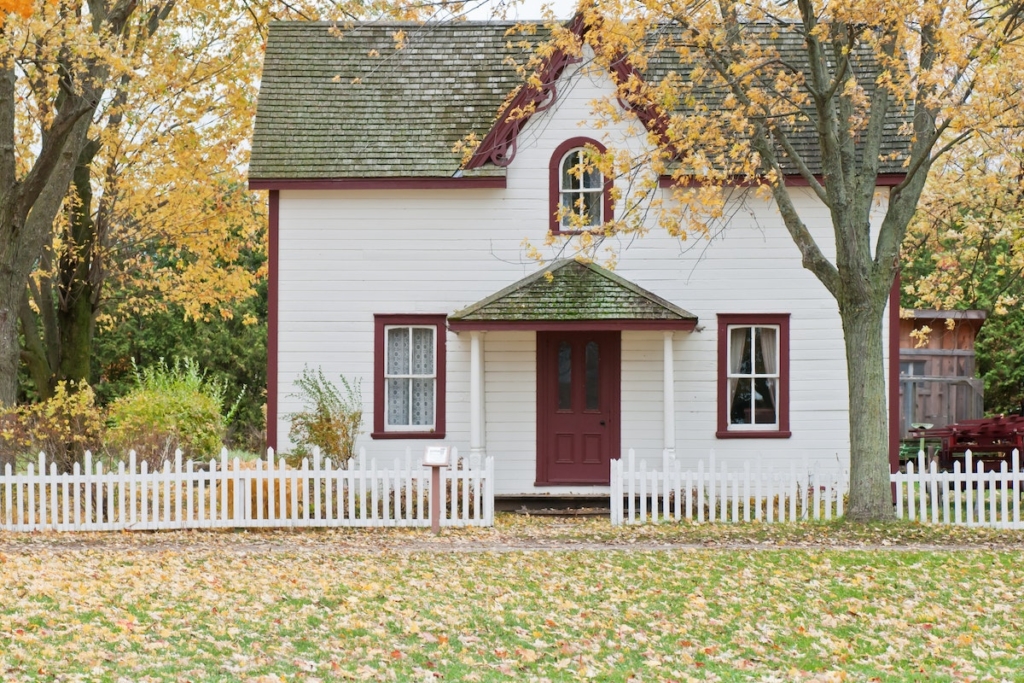Inheritance situations often introduce unique tax considerations that need to be carefully studied by both investors and inheritors. If you are looking to maximize the tax benefits of an inherited property, then a mechanism like a 1031 exchange can be of great value. A 1031 exchange is a tool that allows property owners to defer paying capital gains taxes by reinvesting the proceeds from a sold property into a new, “replacement property”. This method capitalizes on the fair market value principle to reduce capital gains liability.
When it comes to inherited property, understanding how a 1031 exchange works could make the difference between a heavy tax burden and substantial savings. Navigating the complexities of capital gains tax can often be challenging, particularly when dealing with an inherited property. This information is courtesy of NNN Deal Finder’s Resource Page and seeks to provide an in-depth look at how to navigate the intersection of 1031 exchanges and inherited properties.
Exploring the 1031 Exchange

The 1031 exchange, named after Section 1031 of the U.S. Internal Revenue Code, is a vital strategy for managing capital gains tax liabilities. It’s an appealing avenue for real estate investors who wish to maintain momentum in their wealth-building endeavors by reinvesting in new property. In essence, a 1031 exchange allows investors to swap one investment property for another and defer capital gains tax in the process.
In terms of real property tax strategies, this is one of the most efficient ways to build wealth while keeping tax consequences minimal. Notably, 1031 exchanges are applicable to real property or ‘like-kind’ property, and typically not to personal or intangible property. In this context, ‘like-kind’ refers to the nature or character of the property, not its grade or quality. Hence, any real estate investment property, whether it’s commercial or residential, could potentially qualify for this exchange.
When you sell the property, the proceeds go to an intermediary who holds them until they are used to buy a new property. This process allows investors to defer paying capital gains tax until a later date, offering significant tax benefits. These tax benefits primarily arise from deferring capital gains taxes which otherwise would be due at the sale of your property. Moreover, by avoiding the immediate taxing of capital gains, investors can use the entire tax deferment to invest in higher-value properties, essentially leveraging the government’s money for their benefit.
A well-executed 1031 exchange provides an avenue to defer tax payments, which could mean substantial savings given the capital gains rates. In some cases, savvy investors can even plan their exchanges to avoid paying taxes altogether. However, remember that a poorly planned or executed 1031 exchange could result in hefty tax consequences. Therefore, it’s crucial to consult with a tax advisor or real estate professional when considering this option.
An Example of How a 1031 Exchange Works

Certainly, let’s consider a hypothetical example to demonstrate how a 1031 exchange works:
Let’s assume you have an investment property (Property A) that you purchased for $300,000. Over time, the property appreciated in value and is now worth $500,000. If you decide to sell Property A, you would have a capital gain of $200,000 ($500,000 sale price – $300,000 purchase price).
Now, if you were to sell Property A without engaging in a 1031 exchange, you’d be liable for capital gains tax. Let’s assume the capital gains tax rate is 20% (simplified for this example, as actual tax rates may depend on various factors including your income bracket and how long you’ve held the property). The capital gains tax you would owe is $40,000 ($200,000 capital gain * 20% tax rate).
However, if you use a 1031 exchange, you could defer this capital gains tax. Here’s how:
- You sell Property A for $500,000. Instead of taking the proceeds yourself, an intermediary (like a qualified facilitator or escrow company) holds onto them. This ensures you do not ‘touch’ the money, which is a requirement for a valid 1031 exchange.
- Within 45 days of selling Property A, you identify a replacement property (Property B) that you wish to purchase using the funds from the sale of Property A.
- You proceed to buy Property B within 180 days of selling Property A. The purchase price of Property B must be equal to or more than the sale price of Property A to fully defer your capital gains tax. Let’s say Property B costs $550,000.
- The intermediary directly applies the funds from the sale of Property A toward the purchase of Property B.
- As a result of these steps, you have effectively exchanged one property for another without triggering a taxable event. You deferred the $40,000 capital gains tax you would have owed by using a 1031 exchange. This tax is not eliminated but deferred until you sell Property B without engaging in another 1031 exchange.
Please note that this is a simplified example, and other factors such as depreciation recapture and state taxes might also come into play. Always consult with a tax professional to understand the complete implications of a 1031 exchange.
Additionally, certain rules must be followed to realize these tax benefits. For instance, the new property should be of equal or greater value, and all the capital gains from the sold property must be used to acquire the replacement property. Failing to do so may result in the property remaining taxable. Furthermore, there’s a time constraint involved – the new property must be identified within 45 days and purchased within 180 days after the sale of the old property.
Overview of Inherited Properties

An inherited property is one that you acquire as a result of someone’s death, typically through a will or by law if there’s no will. The intricacies of such ownership often necessitate understanding aspects like probate, estate taxes, and the rights and obligations you have as the new owner.
When you inherit property, the value of the property is usually determined at the time of the original owner’s death. This is often referred to as the “stepped-up basis,” meaning that the cost basis of the property steps up to its fair market value at the time of inheritance. This crucial detail has significant tax implications, particularly when it comes to calculating capital gains taxes upon eventual sale. Understanding the key aspects of inherited properties allows owners to better manage their new assets and make informed decisions about their financial future.
How 1031 Exchange Applies to Inherited Properties

Applying a 1031 exchange to an inherited property is a nuanced process. It involves certain specific tax and legal considerations. Understanding how a 1031 exchange can work within the context of inherited property helps to maximize financial efficiency and minimize capital gains tax liabilities.
When you inherit a property, its cost basis is stepped up to the fair market value at the time of the previous owner’s death. This means that when you sell the inherited property, your capital gains tax is calculated on the difference between the sale price and the fair market value at the time of inheritance, not the original purchase price. As such, inherited properties typically have lower capital gains compared to properties bought long ago and appreciated over time.
Can a 1031 Exchange be Applied on an Inherited Property?
The answer is typically no. A key principle of a 1031 exchange is that it is designed for investment properties, which are bought with the intention of profit. Inherited properties, however, are typically considered personal use property upon inheritance, which does not qualify for a 1031 exchange.
So, if you wish to apply a 1031 exchange to an inherited property, you must first convert it into an investment property. This involves using the inherited property for investment purposes, like renting it out for a reasonable period before you decide to sell the property. By demonstrating your intent to hold the property for investment, you can then apply the 1031 exchange to defer capital gains taxes when you swap it for a like-kind, or similar, investment property.
While a 1031 exchange may not apply directly to an inherited property, converting the inherited property into an investment property creates a pathway to utilize this real property tax strategy. As always, it’s essential to consult with a tax professional or real estate advisor to ensure compliance with all rules and regulations and to understand the potential tax consequences of your decisions.
Tips for Maximizing the Benefits of a 1031 Exchange with Inherited Properties

Maximizing the benefits of a 1031 exchange with inherited properties requires careful planning and strategic decision-making. If mismanaged, there could be serious tax consequences that might undermine your investment gains. On the other hand, a well-executed 1031 exchange can be a potent tool for building property wealth, having resolved numerous tax controversies related to high dollar tax deficiencies.
I. Convert Your Inherited Property into an Investment Property
Firstly, remember that to qualify for beneficial tax treatment, the inherited property must be transformed into an investment property. This could mean turning the property into residential rental units or any other form of income-generating venture. It’s not enough just to state your intention to use the property for investment purposes; you need to demonstrate such real property use in practice.
Once you’ve established your inherited property as an investment property, you can start planning for a 1031 exchange. One critical tip is to identify potential replacement properties ahead of the sale of your exchanged property. The IRS requires identification of replacement properties within 45 days after the sale of your relinquished property, so it’s prudent to have your options lined up ahead of time to avoid rushing this crucial step.
II. Assess Your Replacement Property
Next, understand that the price of the replacement property should be equal to or more than your exchanged property’s fair market value. By doing this, you’re ensuring that all of your investment’s capital gains are being reinvested, allowing for complete tax-deferred treatment. In other words, you’re delaying tax payments that would otherwise be due upon the sale of the property, thus minimizing your current tax liabilities.
III. Consult With a Tax Expert
Finally, never underestimate the importance of professional advice. Real estate investment, especially involving 1031 exchanges and inherited properties, can be complex. While real estate investors often have a good grasp of the market, the intricate tax implications of these transactions might require expert insights.
A tax professional can help navigate the numerous tax controversies that might arise and ensure a smooth process with maximum tax benefits. They can also help in avoiding any taxable events, which could trigger tax liability. With the right advice and careful planning, a 1031 exchange can be a great way to potentially grow your real estate investment portfolio.
Final Thoughts on 1031 Exchange Inherited Properties
A 1031 exchange on inherited properties can be a great tool for managing capital gains taxes and potentially growing real estate wealth. It offers a pathway to turn potential tax burdens into opportunities for further investment. But as with any financial strategy, it requires careful navigation and consideration. It’s critical to understand the rules of 1031 exchanges and the unique aspects of inherited properties, including fair market value and the step-up basis principle.
Engaging professional advice is key in leveraging the benefits of a 1031 exchange, especially when dealing with inherited properties. Tax professionals and real estate advisors can provide valuable guidance, helping to avoid pitfalls and optimize financial outcomes. As the landscape of real estate investing continues to evolve, strategies like 1031 exchanges serve as tools that empower both new and seasoned investors to build and preserve their property wealth effectively and efficiently.
If you are an investor looking to take advantage of 1031 exchange benefits, NNN Deal Finder will help you become an informed and profitable investor. We can help you find some of the best properties with the potential for great benefits using 1031 exchanges. Give NNN Deal Finder a call today and get a customized list of investment properties that suit your investment needs and long-term financial goals.
10 Frequently Asked Questions about 1031 Exchange Inherited Properties
1. What is a 1031 exchange in the context of inheriting real estate?
A 1031 exchange, as defined by the Internal Revenue Code, is a strategy that allows you to defer capital gains taxes when selling properties used for business or investment if you reinvest the proceeds in like-kind property. However, the application of a 1031 exchange to inherited real estate is not straightforward. You cannot immediately apply a 1031 exchange on an inherited property, but if you convert the property to an investment or business use, a 1031 exchange could then be used when selling the property.
2. Does a 1031 exchange affect inheritance tax?
Inheritance tax and capital gains tax, which is impacted by a 1031 exchange, are separate tax considerations. Inheritance tax is levied by some states in the U.S., not the federal government, on the value of an estate left to heirs, and it’s typically the responsibility of the estate. A 1031 exchange primarily affects capital gains taxes, which are due when an investment or business property is sold for more than its purchase cost.
3. Can more than one property be used in a 1031 exchange?
Yes, more than one property can be identified and potentially purchased as a replacement in a 1031 exchange. The Internal Revenue Code allows for up to three properties to be identified without regard to their financial value, or an unlimited number of properties whose aggregate fair market value doesn’t exceed 200% of the sold property’s value.
4. What qualifies as like-kind property in a 1031 exchange?
In the context of a 1031 exchange, like-kind refers to the nature or character of the property, not its quality. Real properties generally are like-kind, regardless of whether the properties are improved or unimproved. However, a property that is held primarily for sale or personal use wouldn’t qualify for 1031 exchange treatment.
5. Does a 1031 exchange make financial sense for all inherited properties?
The answer to this question can vary significantly based on individual circumstances and should be discussed with a tax professional. Factors to consider include your current tax bracket, the potential immediate gains from selling the property outright, the property’s cost basis, and the potential depreciation recapture if the property was previously rented.
6. Can I perform a 1031 exchange on inherited partial ownership of a property?
Yes, it is possible to perform a 1031 exchange with partial ownership, as long as the inherited property was converted into an investment property and the replacement property is also intended for investment or business use.
7. What happens if I receive other tangible property or intangible property in a 1031 exchange?
If you receive other tangible or intangible property that’s not considered like-kind, this is typically treated as “boot,” and you may be liable for capital gains tax on the fair market value of this non-like-kind property.
8. What are the tax implications if the 1031 exchange is not done correctly?
If a 1031 exchange is not executed according to the rules set by the Revenue Act and the Internal Revenue Code, it can result in the transaction being disqualified from tax-deferred treatment. This could mean paying capital gains tax and possibly depreciation recapture at your ordinary income tax rate.
9. What is the role of a tax professional in a 1031 exchange of inherited property?
A tax professional can guide you through the complex process of a 1031 exchange, helping to ensure compliance with all tax court rules and regulations, identify beneficial tax strategies, and potentially negotiate favorable settlements. They can provide advice on whether a 1031 exchange makes financial sense for you and how to maximize the benefits.
10. How is the fair market value of the inherited property calculated for a 1031 exchange?
The fair market value of the inherited property is typically determined at the time of the original owner’s death. This “step-up” in basis can impact the amount of capital gain when the property is sold. However, other factors, such as improvements made to the property and depreciation recapture, can adjust this basis. It’s recommended to consult with a tax professional to accurately determine these values.

